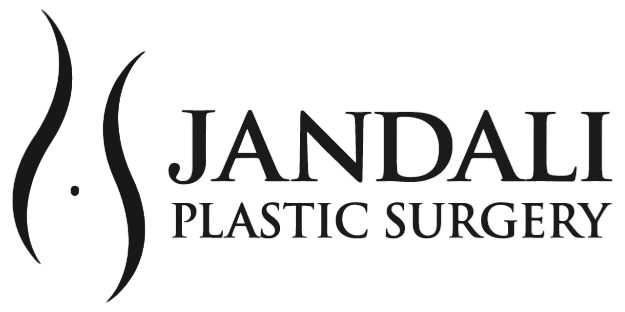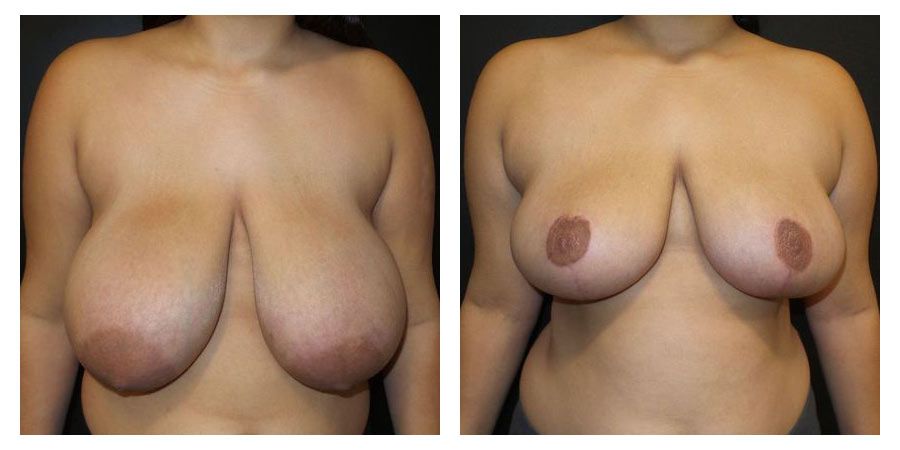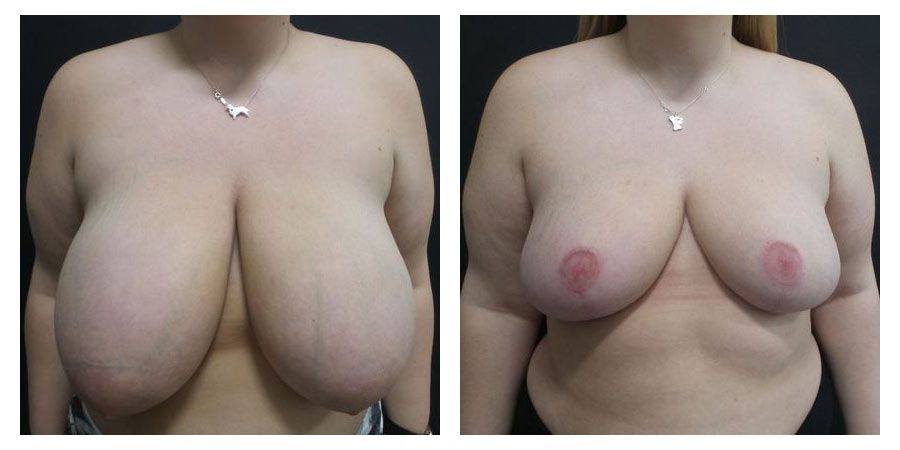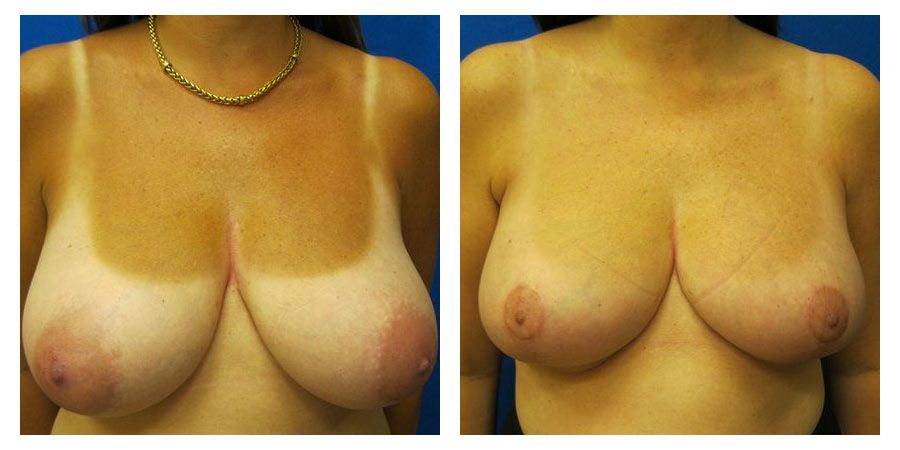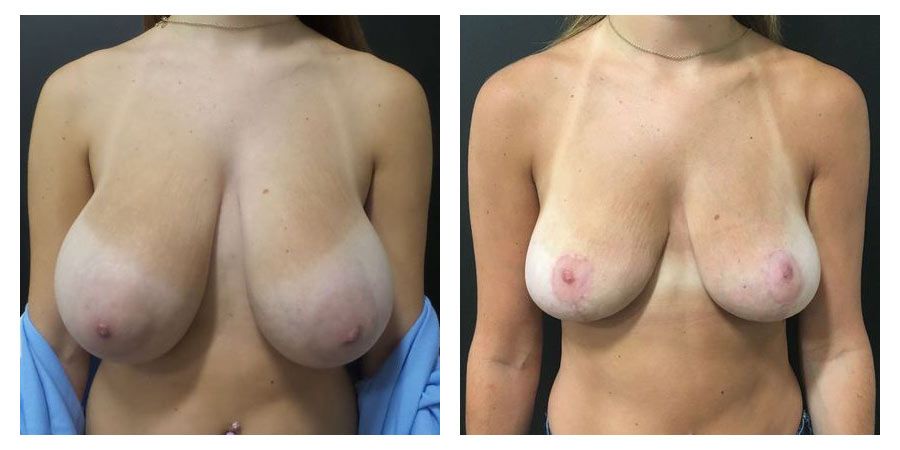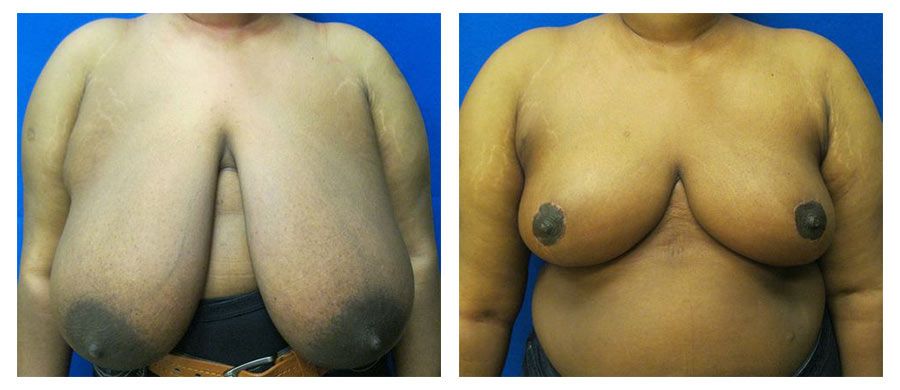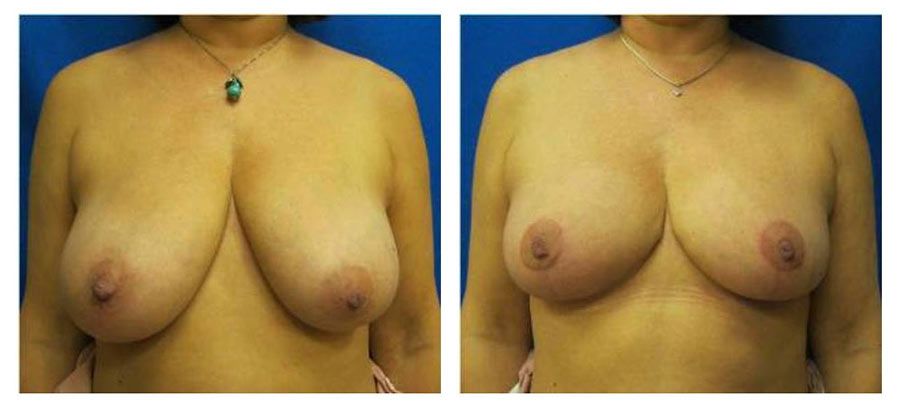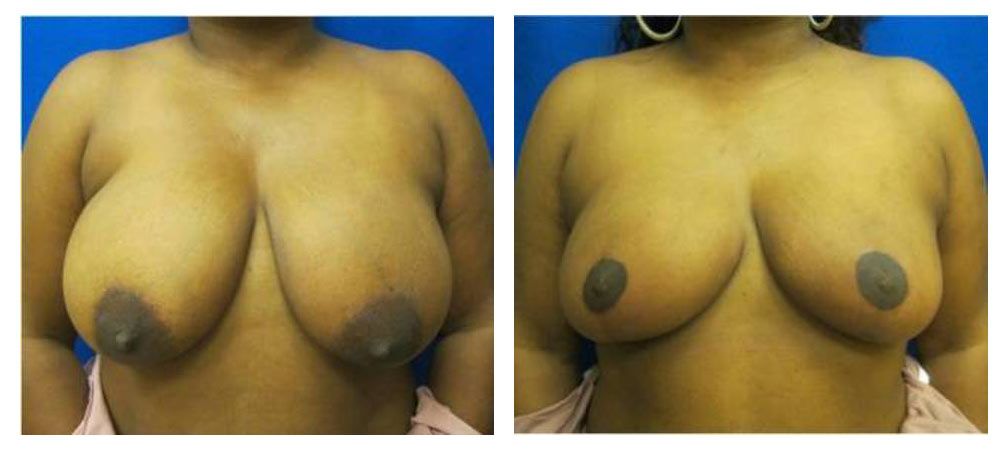Start with our original Breast Reduction Overview Series
Introduction — Refining the Details That Define a Beautiful Result
When women consider breast reduction surgery, they often focus on size and comfort — relief from neck pain, back pain, or shoulder grooves. But one of the most important aspects of a natural and aesthetic result is often overlooked: the nipple and areola.
The position, size, and shape of the nipple-areola complex (NAC) play a huge role in how youthful and symmetrical the breasts appear. During breast reduction, these features can be refined, resized, and repositioned — sometimes using free nipple grafts for the most precise and natural outcome.
At Jandali Plastic Surgery in Trumbull, CT, board-certified plastic surgeon Dr. Shareef Jandali performs over 100 breast reductions every year, using advanced reconstructive and aesthetic techniques to achieve symmetry, balance, and proportion. His goal is not just to make breasts smaller, but to make them beautifully shaped and harmoniously refined.
Visit our Before and After Breast Reduction Gallery
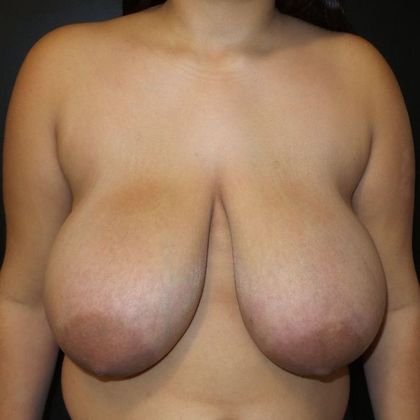
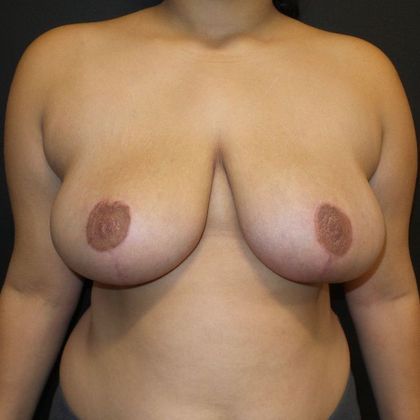
Why the Nipple and Areola Matter
The areola — the pigmented circle around the nipple — naturally enlarges with pregnancy, breastfeeding, weight gain, and gravity. In large or sagging breasts, the nipple may also descend too low on the chest wall, pointing downward instead of forward.
Even after reduction, if the areola remains too large or asymmetric, the results can appear incomplete. That’s why areolar refinement is a critical component of modern breast reduction surgery.
Common Nipple and Areola Concerns:
- Enlarged Areolas – Often stretched over time; reduction provides youthful proportion.
- Low or Drooping Nipples – Lifted and centered to restore symmetry.
- Puffy or Protruding Areolas – Smoothed for a natural contour.
- Uneven Nipple Heights – Balanced for aesthetic harmony.
- Very Large Breasts with Significant Sagging – May require free nipple grafts to reposition the nipples safely.
How Nipple and Areola Reduction Is Performed
1. Marking and Measurement
Before surgery, Dr. Jandali measures and marks the ideal new position of the nipple and areola. The goal is to center the nipple approximately 21–23 cm from the sternal notch or at the midpoint of the upper arm for natural proportion.
2. Areola Reduction
A specialized circular template (usually 38–42 mm) is used to design the new areola size. The excess pigmented skin around it is removed, and the border is sutured precisely for an even, symmetrical appearance.
3. Repositioning (Pedicle Technique)
In most breast reductions, the nipple remains attached to underlying breast tissue through a pedicle — a column of tissue that maintains blood flow and sensation. This allows the nipple to be safely moved higher on the breast while keeping its connection intact.
4. Free Nipple Graft (When Needed)
For women with extremely large, pendulous breasts or when reducing more than 1,000–1,200 grams per breast, blood flow through the pedicle can be at risk. In these cases, Dr. Jandali may use a free nipple graft technique.
This involves carefully removing the nipple and areola, resizing them, and grafting them onto the newly shaped breast at the correct height.
“I was told by other surgeons that my case was too large and would leave my nipples too low. Dr. Jandali performed a free nipple graft, and the results are amazing — natural size, perfect position, and beautifully shaped.”
— R.M., Shelton, CT
What to Expect After a Free Nipple Graft
During healing, the graft takes on new blood supply from the underlying tissue — similar to a skin graft. It may appear darker or lighter initially, then gradually softens and blends with your skin tone over time.
Sensation and Function
Because the nipple is detached and reattached, sensation is typically reduced and the ability to breastfeed is lost. However, the aesthetic improvement and symmetry can be life-changing for women with extremely large or asymmetric breasts.
Scarring
The incision is placed along the areola border, where the natural color transition helps camouflage the scar. Dr. Jandali’s meticulous closure technique and postoperative scar care (silicone sheeting, laser refinement, and topical therapy) help ensure thin, flat scars that fade beautifully.
Puffy or Protruding Areolas — A Specialized Technique
Some women, particularly after pregnancy or prior breast surgery, develop puffy areolas caused by herniation of breast tissue behind the nipple. During breast reduction, this can be corrected by carefully removing or tightening the tissue behind the areola, performing a free nipple graft, and restoring a smooth and natural contour.
Correcting Asymmetry
Even small differences in nipple position can draw attention. Dr. Jandali meticulously adjusts each side independently, ensuring level height, size, and orientation. This precision is especially important for women with:
- Prior uneven breast development
- Previous surgeries
- Weight loss asymmetry
“I always had one nipple lower than the other, and it bothered me in photos. After surgery, they’re even and perfectly sized. It’s a small detail, but it made a big difference.”
— C.L., Norwalk, CT
Recovery Timeline
Timeframe | Healing Milestone |
Week 1 | Dressings in place; mild soreness; graft or sutures checked. |
Week 2 | Sutures dissolve; patients can return to desk work. |
Week 3–6 | Swelling decreases; final areola shape visible. |
Month 3 | Scar fading begins; patients resume normal exercise. |
Month 6–12 | Areola color and scars blend naturally. |
Dr. Jandali provides each patient with a custom scar care plan, including silicone therapy and laser options when indicated.
Long-Term Results
The refined nipple and areola maintain their shape and position permanently. The grafted or resized areola may lighten slightly in pigment over time, but remains proportional to the overall breast contour.
Women report not only physical comfort but also enhanced confidence, body image, and clothing fit after correction.
“My breasts finally look like they belong on my body. The nipples are smaller, lifted, and perfectly even — I feel confident wearing anything.”
— A.S., Fairfield, CT
Frequently Asked Questions
Will the scars around the areola be noticeable?
Scars typically heal to a fine line hidden along the edge of the areola where the color change disguises them. With proper care, most fade significantly within 6–12 months.
Can I choose my areola size?
Yes — Dr. Jandali can use templates to help you preview proportional sizes before surgery.
Will my nipples be numb?
Sensation may be temporarily reduced, especially with free nipple grafts, but partial sensitivity often returns over time for pedicled techniques.
Why Choose Dr. Shareef Jandali
- Board-Certified Plastic Surgeon with 15+ years of experience
- Performs 100+ breast reductions annually
- Expert in complex and secondary (revision) cases
- Uses advanced closure and scar-minimizing techniques
- Offers comprehensive postoperative care, including silicone and laser therapy
- Hundreds of 5-star Google reviews from satisfied patients across Connecticut
“Dr. Jandali is the best. His precision and compassion made me feel completely at ease. The result looks natural and beautiful.”
— E.G., Bridgeport, CT
Serving Patients Across Fairfield County and Beyond
Dr. Jandali serves patients from across Fairfield County and Southern Connecticut, including:
Trumbull, Fairfield, Bridgeport, Stratford, Milford, Shelton, Norwalk, Westport, Weston, Wilton, Easton, Monroe, Derby, Ansonia, Seymour, Oxford, Newtown, Bethel, and Southbury.
Patients also travel from Stamford, Greenwich, and New Haven County for specialized breast and nipple correction procedures.
Call to Action
If you’re considering breast reduction or nipple-areola refinement, schedule a private consultation with Dr. Shareef Jandali to discuss your aesthetic goals and personalized treatment options.
Jandali Plastic Surgery
5520 Park Ave, Suite WP-2-300, Trumbull, CT 06611
203-374-0310
Related Articles in the Advanced Breast Reduction Series
- Scars After Breast Reduction — How We Minimize, Heal, and Refine Them
- Teen Breast Reduction: Safety, Confidence, and Insurance Coverage
- Recovery Timeline After Breast Reduction Surgery
- Post-Pregnancy & Post-Weight-Loss Breast Reduction (Ozempic, Wegovy, Mounjaro)
- Breast Reduction vs. Breast Lift — Which Is Right for You?
- Breast Reduction After Prior Augmentation
- Breast Reduction for Older Women — Comfort, Posture, and Confidence
- Combining Breast Reduction with Liposuction — Enhanced Contour & Shape
- Breast Reduction and Asymmetry Correction
- Insurance-Covered Breast Reduction in Connecticut — What to Know
- Breast Reduction for Athletes
- Breast Reduction and Mental Health
- Breast Reduction and Back, Neck, and Shoulder Pain
- The Jandali Advantage — Why Experience and Volume Matter
- Breast Reduction and Bra Fitting After Surgery
- Revision Breast Reduction Surgery
- Nipple & Areola Shaping, Reduction, and Free Nipple Grafts
- Myths and Misconceptions About Breast Reduction Surgery
- Choosing the Right Size After Breast Reduction
